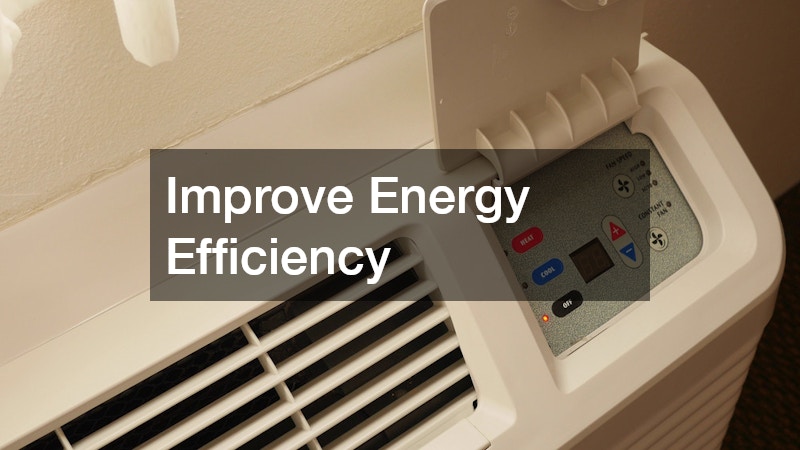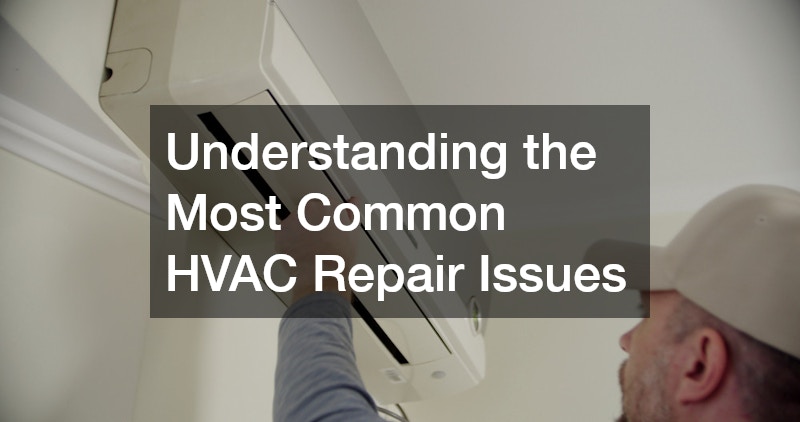The HVAC system is a crucial component of any home or business, providing comfort and air quality control throughout the year. However, like any complex system, it is prone to problems that can affect its performance. This article will explore the most common HVAC repair issues, offering insights into causes, preventative measures, and solutions.
HVAC System Not Cooling Properly?
Common Causes of Cooling Issues
One of the primary problems that can impair an HVAC system’s cooling capability is a refrigerant leak. This issue can prevent the system from effectively removing heat, which reduces its ability to maintain optimal temperatures.
Other common causes include dirty filters, which restrict airflow and put additional strain on the system, and faulty thermostats that may fail to signal the system to operate correctly.
Refrigerant leaks are often challenging to detect without professional assistance, as they might not manifest immediately as a visible or obvious problem. Dirty filters can accumulate dust and debris over time, leading to gradual declines in system performance. Regularly inspecting the thermostat can help, as a malfunctioning one might create inconsistency in heating and cooling cycles.
Preventative Maintenance Tips
Preventive maintenance is an essential practice for keeping an HVAC system in top condition. Regularly cleaning and replacing filters is a straightforward way to ensure unrestricted airflow and prevent system strain. Scheduling professional inspections can help identify potential problems before they become major issues, providing long-term benefits.
In addition to professional check-ups, homeowners can take simple steps to maintain their systems, such as keeping the area around the unit clear of obstructions and ensuring that vents are open and unblocked. Monitoring and replacing filters every one to three months goes a long way in preserving system efficiency and longevity. This proactive approach not only enhances system performance but also improves indoor air quality. Engaging a licensed HVAC technician for seasonal inspections ensures all components are performing optimally.
Effective Repair Solutions
When an HVAC system experiences cooling issues, implementing effective repair solutions is crucial to restore comfort quickly. Refilling refrigerant levels is often necessary when leaks are present, although this is typically best handled by professionals. In cases where a leak is identified, repairing it promptly prevents further refrigerant loss and more extensive damage.
Another common repair solution involves addressing problems with thermostats, either by recalibrating or replacing them. Malfunctioning thermostats can disrupt heating and cooling cycles, leading to an inefficient system that struggles to maintain desired temperatures. Conducting a thorough examination of the thermostat can reveal such malfunctions and guide corrective actions.
What Should I Do If My HVAC System Is Making Unusual Noises?
Types of Noises and Their Meanings
Unusual noises from an HVAC system can indicate various underlying issues and should not be ignored. For instance, rattling sounds might suggest loose parts within the system or debris caught within the ducts. Clanging noises often point to a misaligned fan or a loose component striking metal surfaces.
Hissing noises could mean a refrigerant leak, typically resulting in a drop in system pressure and compromised efficiency. Meanwhile, a high-pitched squeal might indicate a faulty belt, often caused by wear and tear over time. Each sound has its diagnostic potential and should be investigated and addressed effectively.
Identifying the Noise Source
To identify the source of unusual noises, start by turning off the HVAC system and visually inspecting key components. Check for obstructions or visible damage around the fans and motors. You can also listen to the origin of sound; it is crucial to isolate which part of the system the sound is emanating from to facilitate a targeted diagnosis.
A common area to inspect includes the ductwork, as loose or improperly sealed ducts can cause significant rattling noises. Additionally, inspect the compressor, as issues here can produce distinct humming or clicking sounds. By narrowing down the location and cause of the noise, a more precise repair can be carried out.
When to Call a Professional
Knowing when to call a professional is essential for safety and effective HVAC repair. When unusual noises persist despite initial checks or if the source is difficult to access without specialized equipment, it’s time to consult a technician. Attempting extensive repairs without proper experience can exacerbate the issue or lead to liability concerns.
For hissing sounds indicative of refrigerant leaks, professional intervention is crucial, as improper handling can pose environmental and health risks. Similarly, complex components like compressors should be serviced by certified professionals to ensure compliance with safety standards. Professionals possess the necessary training to safely and effectively handle such repairs.
How Can I Improve My HVAC System’s Energy Efficiency?
There are several factors that can lead to decreased HVAC system efficiency, making it crucial to identify and address them for better performance. Duct leaks are a common culprit, allowing treated air to escape and causing the system to work harder to maintain desired temperatures. Outdated equipment can also contribute, as older models are generally less efficient compared to modern, energy-saving versions.
Improving HVAC system efficiency is achievable with a few strategic steps. Sealing ducts can prevent air leaks that waste significant energy and cause increased utility bills. Ductwork design and quality play a crucial role in overall HVAC system efficiency.
Upgrading equipment is another viable option, particularly for older systems that lack advanced energy-saving features. Consider systems with high SEER (Seasonal Energy Efficiency Ratio) ratings, which indicate better efficiency in energy use. Advanced thermostats with programmable features allow for optimized temperature control, further enhancing energy savings.
Understanding these common HVAC issues can help homeowners and business owners maintain their systems more effectively, improve energy efficiency, and reduce repair costs. Regular maintenance and timely repairs are key to ensuring your HVAC system continues to function correctly and efficiently. By proactively addressing these prevalent concerns, individuals can enjoy enhanced comfort, decreased energy expenditure, and greater environmental responsibility.
.

